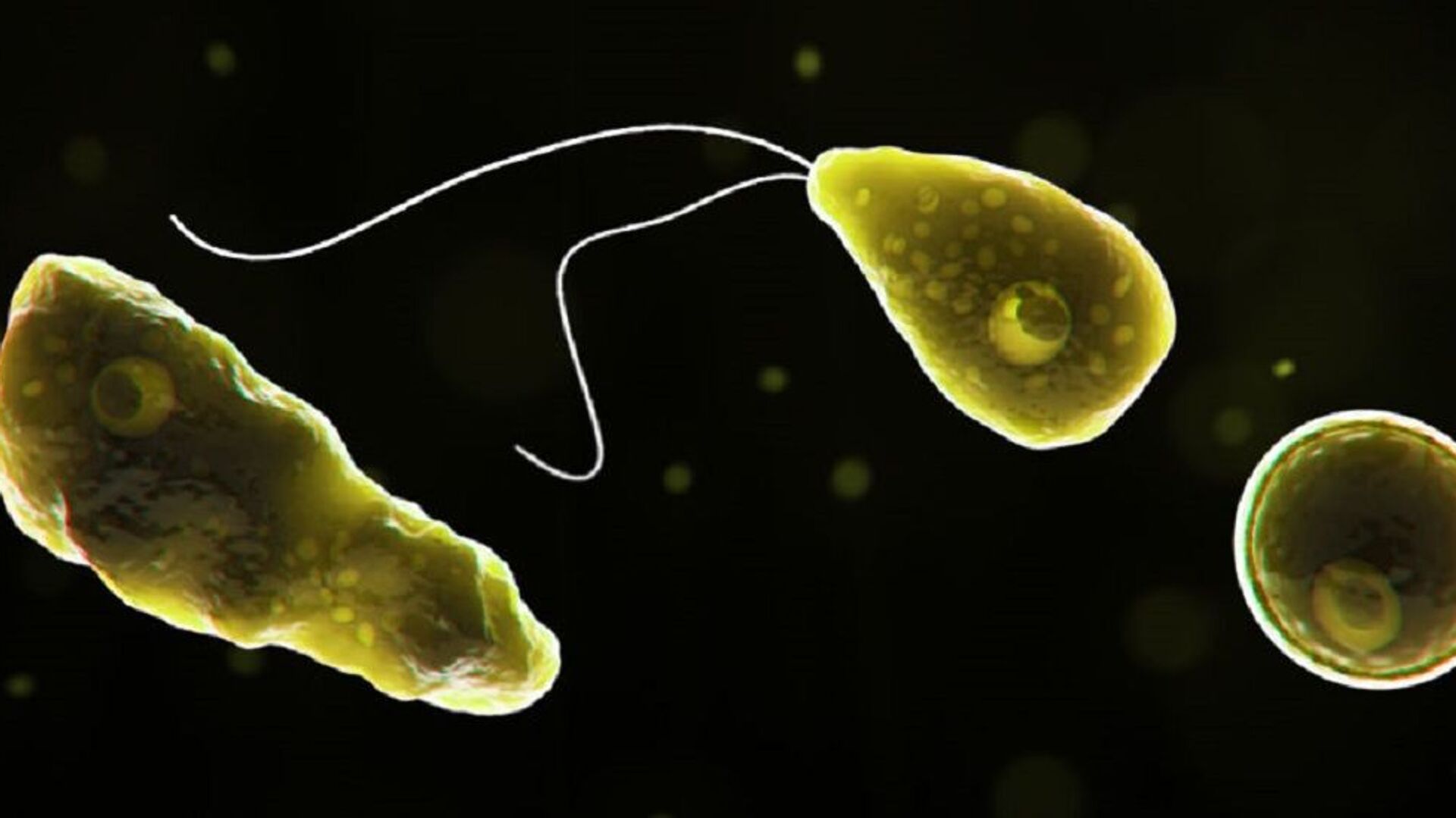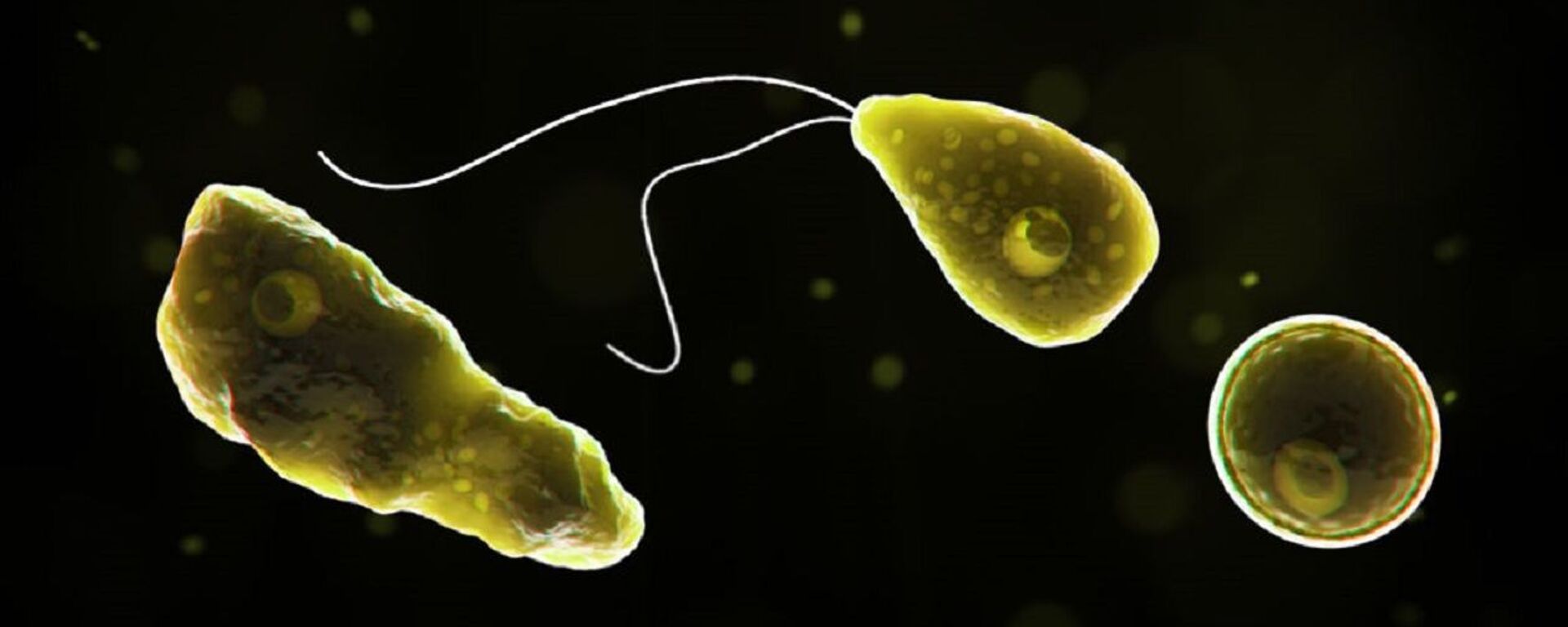https://sputnikglobe.com/20220806/israeli-man-dies-after-contracting-infection-from-rare-brain-eating-amoeba-1098290674.html
Israeli Man Dies After Contracting Infection From Rare ‘Brain-Eating Amoeba’
Israeli Man Dies After Contracting Infection From Rare ‘Brain-Eating Amoeba’
Sputnik International
The Naegleria fowleri is an amoeba that can be found in soil and warm fresh water, such as lakes, rivers, and hot springs. It is referred to colloquially as a... 06.08.2022, Sputnik International
2022-08-06T01:18+0000
2022-08-06T01:18+0000
2022-08-06T01:18+0000
disease
naegleria fowleri amoeba
amoeba
https://cdn1.img.sputnikglobe.com/img/107637/00/1076370062_141:0:1119:550_1920x0_80_0_0_47d733ca9ed3a0d94b947f55872b3776.jpg
A 36-year-old Israeli man has died after contracting the infection Primary Amoebic Meningoencephalitis, a rare disease caused by Naegleria fowleri that attacks a person’s central nervous system. Between 1962 and 2021, the Centers for Disease Control and Prevention (CDC) noted that out of 154 individuals who were diagnosed with the disease, only four survived.Because only 400 cases of the rare disease have occurred globally, the CDC was contacted by the Health Ministry to run a clinical sample of the infection, while the Health Ministry alongside the Environmental Protection Ministry and the Agriculture Ministry have begun an investigation on where the otherwise healthy 36-year-old man came into contact with the amoeba.In July, a 13-year-old boy from Florida was hospitalized after he contracted the brain-eating amoeba. Caleb Ziegelbaur had been visiting Port Charlotte Beach Park with his family, according to a GoFundMe set up by his family to help pay for his medical bills. At first he was diagnosed with meningitis following a headache and a fever, until the CDC directed doctors to start treating him for the amoeba 10 days following the day he went swimming."[He] has been breathing on his own for almost a full week now," the boy’s family wrote on GoFundMe. "His MRI scan from 7/20 continues to show damage in his brain but we remain hopeful that he'll turn the corner soon and make his way back to us."
https://sputnikglobe.com/20220713/brain-eating-amoeba-may-be-spreading-to-northern-us-states-1097288993.html
Sputnik International
feedback@sputniknews.com
+74956456601
MIA „Rosiya Segodnya“
2022
Mary Manley
https://cdn1.img.sputnikglobe.com/img/07e6/01/0b/1092187887_0:0:2048:2049_100x100_80_0_0_0c2cc4c84f89aff034cc55bb01fb6697.jpg
Mary Manley
https://cdn1.img.sputnikglobe.com/img/07e6/01/0b/1092187887_0:0:2048:2049_100x100_80_0_0_0c2cc4c84f89aff034cc55bb01fb6697.jpg
News
en_EN
Sputnik International
feedback@sputniknews.com
+74956456601
MIA „Rosiya Segodnya“
Sputnik International
feedback@sputniknews.com
+74956456601
MIA „Rosiya Segodnya“
Mary Manley
https://cdn1.img.sputnikglobe.com/img/07e6/01/0b/1092187887_0:0:2048:2049_100x100_80_0_0_0c2cc4c84f89aff034cc55bb01fb6697.jpg
disease, naegleria fowleri amoeba, amoeba
disease, naegleria fowleri amoeba, amoeba
Israeli Man Dies After Contracting Infection From Rare ‘Brain-Eating Amoeba’
The Naegleria fowleri is an amoeba that can be found in soil and warm fresh water, such as lakes, rivers, and hot springs. It is referred to colloquially as a “brain-eating amoeba” because the amoeba can cause an attack on the central nervous system, and though it’s rare, it is almost always fatal.
A 36-year-old
Israeli man has died after contracting the infection Primary Amoebic Meningoencephalitis, a rare
disease caused by Naegleria fowleri that attacks a person’s central nervous system. Between 1962 and 2021, the Centers for Disease Control and Prevention (CDC) noted that out of 154 individuals who were diagnosed with the disease, only four survived.
Because only 400 cases of the rare disease have occurred globally, the CDC was contacted by the Health Ministry to run a clinical sample of the infection, while the Health Ministry alongside the Environmental Protection Ministry and the Agriculture Ministry have begun an investigation on where the otherwise healthy 36-year-old man came into contact with the amoeba.
“The Health Ministry is working with the Ministries of environmental protection and agriculture [to find the source] and will update the public on its finds,” the ministry said.
In July, a 13-year-old boy from
Florida was hospitalized after he contracted the brain-eating amoeba. Caleb Ziegelbaur had been visiting Port Charlotte Beach Park with his family, according to a GoFundMe set up by his family to help pay for his medical bills. At first he was diagnosed with meningitis following a headache and a fever, until the CDC directed doctors to start treating him for the amoeba 10 days following the day he went swimming.
"[He] has been breathing on his own for almost a full week now," the boy’s family wrote on GoFundMe. "His MRI scan from 7/20 continues to show damage in his brain but we remain hopeful that he'll turn the corner soon and make his way back to us."





